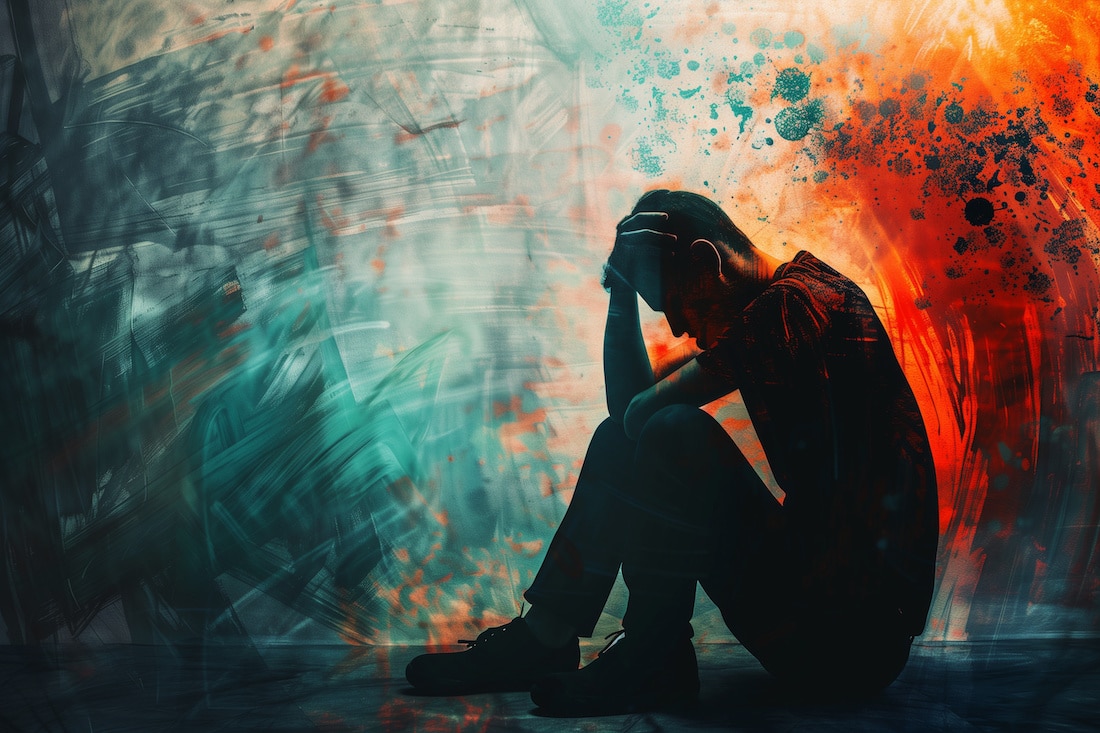 For as long as you can remember, people close to you have been telling you to calm down. You’ve been called a drama queen, a lush, and worse. You’ve been told you’re overreacting, that you need to chill out, and that you’re being irrational so often it’s enough to make you feel crazy. But the reality of coping with Borderline Personality Disorder (BPD) and alcoholism is that what you feel is rational to you, and the intensity with which you feel it is overwhelming.
For as long as you can remember, people close to you have been telling you to calm down. You’ve been called a drama queen, a lush, and worse. You’ve been told you’re overreacting, that you need to chill out, and that you’re being irrational so often it’s enough to make you feel crazy. But the reality of coping with Borderline Personality Disorder (BPD) and alcoholism is that what you feel is rational to you, and the intensity with which you feel it is overwhelming.
Borderline Personality Disorder
BPD is a personality disorder that tends to occur in women more often than men. The central feature of this disorder is what therapists call emotional dysregulation. The prefix “dys” means painful, and BPD can be extremely emotionally painful to live with. Dysregulated emotions happen when you perceive that you are misunderstood, rejected, or abandoned. The sting of a rejection can escalate into full blown depression in a matter of minutes. Waiting for a phone call can create anxiety that spirals into a panic attack. Women struggling with BPD often feel emotionally wrung out and exhausted, battered by daily life and the emotional extremes that dysregulation brings.
It’s important to understand that although BPD is called a personality disorder, it doesn’t mean there is something wrong with your personality. Personality disorders are different from other types of mental illnesses in that they affect your whole approach to the world, and have been a part of you your whole life. Unlike other diagnoses, such as depressive disorders or anxiety disorders, personality disorders seem to be less responsive to most medications.
For women with BPD, abandonment is a key issue. Worrying about potential abandonments takes up enormous quantities of emotional energy and is so intense it leads to emotional dysregulation. Rages, depressive episodes, and paralyzing anxiety are all common for women coping with BPD. And underneath it all, you often feel strangely empty or hollow. It’s like there’s a core part of you way deep inside that is just not there.
Alcoholism
Alcohol is a central nervous system depressant. That means that it tends to slow everything down – from your heart rate to your emotional reactions. For someone struggling with wave after wave of overwhelming emotions, drinking can make you feel almost normal. Alcohol’s sedative action offers relief, and feeling better, even briefly, is incredibly appealing.
However, alcohol also reduces inhibitions and impairs judgement. Drinking impairs thinking, which can lead to impaired decision-making. Drinking also dramatically reduces self-control, leading to saying and doing things that you might not say or do if sober. Afterwards you feel shame about what happened while drinking, and that can lead to feeling terrible about yourself, which spurs more depression and anxiety – in other words, more emotional dysregulation.
Becoming addicted to alcohol cements this vicious cycle into place. Drinking offers some relief, briefly, but ultimately makes everything worse. And yet, you can’t stop. You feel shame about being addicted and out of control in yet one more area of your life, when all you really want is to feel in control – of your feelings and your actions.
Getting Help
Getting help for BPD and co-occuring alcoholism can be difficult. Maybe you’ve tried just stopping drinking and going to meetings, but in meetings you feel vulnerable and exposed. It’s easy to get overwhelmed and end up making a scene, either crying or flying into a rage in meetings, especially when people in recovery don’t understand you, or act like you should just calm down. It can be really hard to go back and try again. In therapy, it can be hard to open up about how much you’re drinking, and way too easy to end up feeling judged.
Wanting to feel better is a critical first step. Depending upon how much you’ve been drinking and for how long, you might need some special help to stop drinking safely. Talk with your therapist or your doctor, and be honest about your drinking history. Sometimes stopping drinking can make you feel jittery and ill, or worse, so you may be prescribed some medication to help you get through that brief but uncomfortable period.
And then the work begins! Learning about BPD and how to cope with these waves of strong emotions is a life journey. Using a treatment technique called Dialectical Behavior Therapy (DBT), you will learn about using mindfulness to stay in the here and now, which helps prevent extreme emotions. You’ll learn to deal with people and relationships much more effectively, which also can help you to avoid getting overwhelmed. Learning to tolerate being uncomfortable, emotionally and physically, is another part of DBT and helps with moderating emotions. And using DBT you also learn specific skills that will help you regulate your emotions.
Getting help takes hope and courage. It takes strength to trust that you can feel better, and be more in control of your emotions and your behavior. And it takes a little bit of love. Love yourself enough to give treatment a try.
References:
https://psychcentral.com/lib/an-overview-of-dialectical-behavior-therapy/2/
https://www.mayoclinic.org/diseases-conditions/borderline-personality-disorder/symptoms-causes/syc-20370237
https://psychcentral.com/blog/dialectical-behavior-therapy-for-more-than-borderline-personality-disorder/



